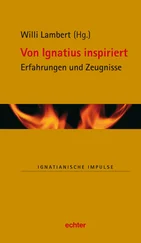Ignatius Donnelly - Antediluvian world
Здесь есть возможность читать онлайн «Ignatius Donnelly - Antediluvian world» весь текст электронной книги совершенно бесплатно (целиком полную версию без сокращений). В некоторых случаях можно слушать аудио, скачать через торрент в формате fb2 и присутствует краткое содержание. Жанр: Старинная литература, на русском языке. Описание произведения, (предисловие) а так же отзывы посетителей доступны на портале библиотеки ЛибКат.
- Название:Antediluvian world
- Автор:
- Жанр:
- Год:неизвестен
- ISBN:нет данных
- Рейтинг книги:5 / 5. Голосов: 1
-
Избранное:Добавить в избранное
- Отзывы:
-
Ваша оценка:
- 100
- 1
- 2
- 3
- 4
- 5
Antediluvian world: краткое содержание, описание и аннотация
Предлагаем к чтению аннотацию, описание, краткое содержание или предисловие (зависит от того, что написал сам автор книги «Antediluvian world»). Если вы не нашли необходимую информацию о книге — напишите в комментариях, мы постараемся отыскать её.
Antediluvian world — читать онлайн бесплатно полную книгу (весь текст) целиком
Ниже представлен текст книги, разбитый по страницам. Система сохранения места последней прочитанной страницы, позволяет с удобством читать онлайн бесплатно книгу «Antediluvian world», без необходимости каждый раз заново искать на чём Вы остановились. Поставьте закладку, и сможете в любой момент перейти на страницу, на которой закончили чтение.
Интервал:
Закладка:
“And it came to pass in the six hundredth and first year, in the first month, the first day of the month, the waters were dried up from off the earth: and Noah removed the covering of the ark, and looked, and, behold, the face of the ground was dry. And in the second month, on the seven and twentieth day of the month, was the earth dried.
“And God spake unto Noah, saying, Go forth of the ark, thou, and thy wife, and thy sons, and thy sons’ wives with thee. Bring forth with thee every living thing that is with thee, of all flesh, both of fowl and of cattle, and of every creeping thing that creepeth upon the earth; that they may breed abundantly in the earth, and be fruitful, and multiply upon the earth.
“And Noah went forth, and his sons, and his wife, and his sons’ wives with him: every beast, every creeping thing, and every fowl, and whatsoever creepeth upon the earth, after their kinds, went forth out of the ark.
“And Noah builded an altar unto the Lord; and took of every clean beast, and of every clean fowl, and offered burnt offerings on the altar. And the Lord smelled a sweet savour; and the Lord said in his heart, I will not again curse the ground any more for man’s sake; for the imagination of man’s heart is evil from his youth: neither will I again smite any more every thing living, as I have done. While the earth remaineth, seedtime and harvest, and cold and heat, and summer and winter, and day and night shall not cease.”
Let us briefly consider this record.
It shows, taken in connection with the opening chapters of Genesis: 1. That the land destroyed by water was the country in which the civilization of the human race originated. Adam was at first naked (Gen., chap. iii., 7); then he clothed himself in leaves; then in the skins of animals (chap. iii., 21): he was the first that tilled the earth, having emerged from a more primitive condition in which he lived upon the fruits of the forest (chap. ii., 16); his son Abel was the first of those that kept flocks of sheep (chap. iv., 2); his son Cain was the builder of the first city (chap. iv., 17); his descendant, Tubal-cain, was the first metallurgist (chap. iv., 22); Jabal was the first that erected tents and kept cattle (chap. iv., 20); Jubal was the first that made musical instruments. We have here the successive steps by which a savage race advances to civilization. We will see hereafter that the Atlanteans passed through precisely similar stages of development.
2. The Bible agrees with Plato in the statement that these Antediluvians had reached great populousness and wickedness, and that it was on account of their wickedness God resolved to destroy them.
3. In both cases the inhabitants of the doomed land were destroyed in a great catastrophe by the agency of water; they were drowned.
4. The Bible tells us that in an earlier age, before their destruction, mankind had dwelt in a happy, peaceful, sinless condition in a Garden of Eden. Plato tells us the same thing of the earlier ages of the Atlanteans.
6. In both the Bible history and Plato’s story the destruction of the people was largely caused by the intermarriage of the superior or divine race, “the sons of God,” with an inferior stock, “the children of men,”
whereby they were degraded and rendered wicked.
We will see hereafter that the Hebrews and their Flood legend are closely connected with the Phoenicians, whose connection with Atlantis is established in many ways.
It is now conceded by scholars that the genealogical table given in the Bible (Gen., chap. x.) is not intended to include the true negro races, or the Chinese, the Japanese, the Finns or Lapps, the Australians, or the American red men. It refers altogether to the Mediterranean races, the Aryans, the Cushites, the Phoenicians, the Hebrews, and the Egyptians. “The sons of Ham” were not true negroes, but the dark-brown races. (See Winchell’s “Preadamites,” chap. vii.) If these races (the Chinese, Australians, Americans, etc.) are not descended from Noah they could not have been included in the Deluge. If neither China, Japan, America, Northern Europe, nor Australia were depopulated by the Deluge, the Deluge could not have been universal. But as it is alleged that it did destroy a country, and drowned all the people thereof except Noah and his family, the country so destroyed could not have been Europe, Asia, Africa, America, or Australia, for there has been no universal destruction of the people of those regions; or, if there had been, how can we account for the existence to-day of people on all of those continents whose descent Genesis does not trace back to Noah, and, in fact, about whom the writer of Genesis seems to have known nothing?
We are thus driven to one of two alternative conclusions: either the Deluge record of the Bible is altogether fabulous, or it relates to some land other than Europe, Asia, Africa, or Australia, some land that was destroyed by water. It is not fabulous; and the land it refers to is not Europe, Asia, Africa, or Australia—but Atlantis. No other land is known to history or tradition that was overthrown in a great catastrophe by the agency of water; that was civilized, populous, powerful, and given over to wickedness.
That high and orthodox authority, Francois Lenormant, says (“Ancient Hist. of the East,” vol. i., p. 64), “The descendants of Shem, Ham, and Japhet, so admirably catalogued by Moses, include one only of the races of humanity, the white race, whose three chief divisions he gives us as now recognized by anthropologists. The other three races—yellow, black, and red—have no place in the Bible list of nations sprung from Noah.”
As, therefore, the Deluge of the Bible destroyed only the land and people of Noah, it could not have been universal. The religious world does not pretend to fix the location of the Garden of Eden. The Rev.
George Leo Haydock says, “The precise situation cannot be ascertained; bow great might be its extent we do not know;” and we will see hereafter that the unwritten traditions of the Church pointed to a region in the west, beyond the ocean which bounds Europe in that direction, as the locality in which “mankind dwelt before the Deluge.”
It will be more and more evident, as we proceed in the consideration of the Flood legends of other nations, that the Antediluvian World was none other than Atlantis.
CHAPTER III.
THE DELUGE OF THE CHALDEANS.
We have two versions of the Chaldean story—unequally developed, indeed, but exhibiting a remarkable agreement. The one most anciently known, and also the shorter, is that which Berosus took from the sacred books of Babylon, and introduced into the history that he wrote for the use of the Greeks. After speaking of the last nine antediluvian kings, the Chaldean priest continues thus.
“Obartes Elbaratutu being dead, his son Xisuthros (Khasisatra) reigned eighteen sares (64,800 years). It was under him that the Great Deluge took place, the history of which is told in the sacred documents as follows: Cronos (Ea) appeared to him in his sleep, and announced that on the fifteenth of the month of Daisios (the Assyrian month Sivan—a little before the summer solstice) all men should perish by a flood. He therefore commanded him to take the beginning, the middle, and the end of whatever was consigned to writing, and to bury it in the City of the Sun, at Sippara; then to build a vessel, and to enter it with his family and dearest friends; to place in this vessel provisions to eat and drink, and to cause animals, birds, and quadrupeds to enter it; lastly, to prepare everything, for navigation. And when Xisuthros inquired in what direction he should steer his bark, he was answered, ‘toward the gods,’ and enjoined to pray that good might come of it for men.
“Xisuthros obeyed, and constructed a vessel five stadia long and five broad; he collected all that had been prescribed to him, and embarked his wife, his children, and his intimate friends.
Читать дальшеИнтервал:
Закладка:
Похожие книги на «Antediluvian world»
Представляем Вашему вниманию похожие книги на «Antediluvian world» списком для выбора. Мы отобрали схожую по названию и смыслу литературу в надежде предоставить читателям больше вариантов отыскать новые, интересные, ещё непрочитанные произведения.
Обсуждение, отзывы о книге «Antediluvian world» и просто собственные мнения читателей. Оставьте ваши комментарии, напишите, что Вы думаете о произведении, его смысле или главных героях. Укажите что конкретно понравилось, а что нет, и почему Вы так считаете.












